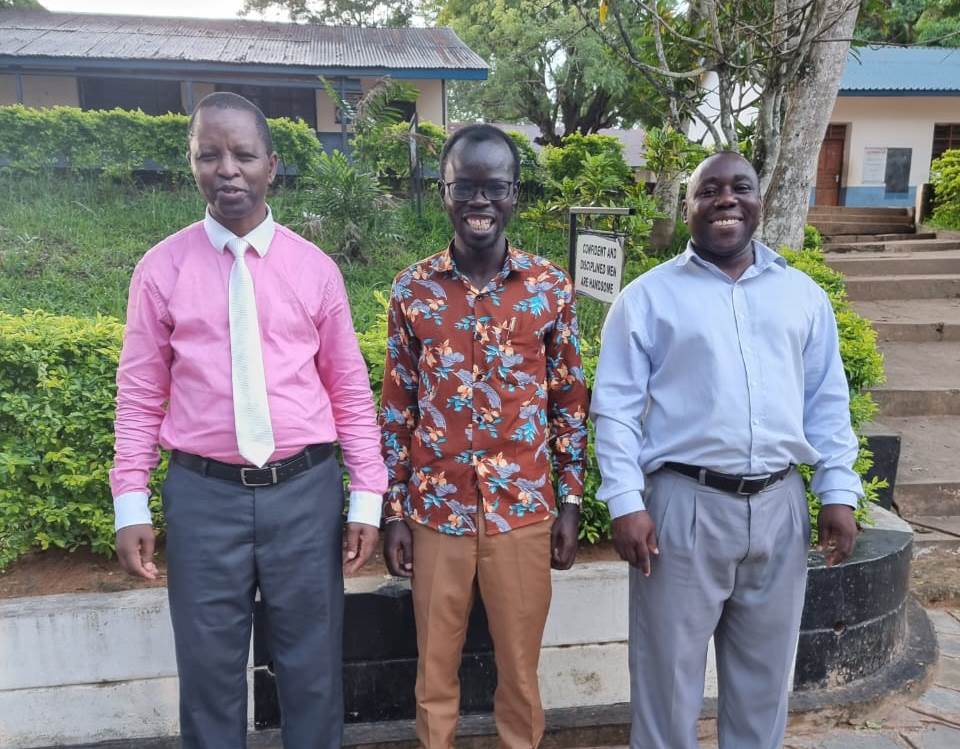By Victor Ochieng’
A fortnight ago, I had the highly-coveted chance to visit Ribe National School in Kilifi County. Mr. Benson Manoo, the Chief Principal, invited me for a tripartite assignment.
Foremost was to have a candid conversation with the candidate class. Secondly was to build the capacity of captains to act as a strong bridge between the student body and administration. Lastly, I was to meet teachers of English and Literature to discuss the best academic practices pertaining the teaching of English as a compulsory subject.
This was my first time to meet this mild character called Manoo, who puts God first in everything he does.
In my maiden visit to Ribe National School, I was impressed by the rich Christian tradition which the Chief Principal did not dither to share. Ribe Boys sits in a vast mission area close to Kaya shrines. The exact place the school is perched is a sacrosanct spot where the Methodist Church started then spread like bush fire to other parts of Kenya. It is important to note: Ribe is close to Rabai – the first place in Kenya where the Church Missionary Society (CMS) from Britain established a mission centre.
Johann Ludwig Kraft who was among the first protestant missionaries in Kenya is also remembered to have played a pivotal role in the spread of the Methodist Church in Kenya, whose impact is evident in some of our schools in Kenya.
Consequently, those who are at home with our rich national history know that churches have played a pivotal role in the growth and development of schools. Schools built by missionaries in the past have sleek infrastructure. Churches that sponsor our schools in this age have the mandate to propagate this wonderful work.
For instance, in 1906, the Church Missionary Society (CMS) birthed Maseno School in Kisumu. Alliance High School started in 1926, and Alliance Girls was incepted in 1938. They are alliances of four protestant churches that played a pivotal role in their conception, birth and growth. The four include The Church of Scotland Mission, which later morphed to Presbyterian Church of East Africa (PCEA), Church of the Province of Kenya (CPK) presently known as Anglican Church of Kenya (ACK), African Inland Church (AIC) and Methodist Church of Kenya (MCK).
Moreover, institutions like Ribe National School in Kilifi strive to preserve the culture instilled and inculcated by church and clergy. No wonder, such churches deploy chaplains to take care of spiritual programmes in schools they sponsor.
When I visited Ribe to roll out the talks and training programmes, we buttressed on sound Christian principles and practices, working closely with the calm and composed Chaplain of the school, a clever cleric deployed there by the Methodist Church of Kenya.
Therefore, we all see the churches which sponsor schools playing an integral role in the growth and development of our institutions. Principals of schools who maintain a cordial relationship with the sponsors accrue bountiful benefits.
Just to capture a few, servants of the churches provide psycho-social and spiritual support to both students and staff. They provide professional and pastoral counselling. Schools with dedicated and devoted sponsors meet the triad purpose of schools: value addition, character development and holistic formation.
Education Act, 2013, while spelling out the role of church sponsorship on deft management of public secondary schools, posits: Church sponsors are expected to participate in the preparation of religious education syllabus. It is incumbent upon them to provide good guidance on school staffing, implementation of education policies, search for new pragmatic approaches to education, and be at the centre stage of resource-mobilisation in our schools.
The writer rolls out talks and training services in schools. vochieng.90@gmail.com.






